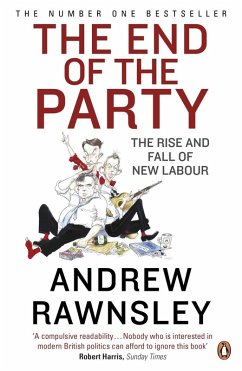
Thatcherism Revisited (eBook, ePUB)
Neo-Thatcherism in the 21st Century
Versandkostenfrei!
Sofort per Download lieferbar
Statt: 42,95 €**
29,99 €
inkl. MwSt. und vom Verlag festgesetzt.
**Preis der gedruckten Ausgabe (Broschiertes Buch)
Alle Infos zum eBook verschenkenWeitere Ausgaben:

PAYBACK Punkte
0 °P sammeln!
Bachelor Thesis from the year 2011 in the subject Politics - Region: Western Europe, University of Exeter (College of Social Sciences and International Studies), course: BA (Hons) Economics & Politics, language: English, abstract: Thatcherism continues to be one of the most contentious approaches in British politics today, just as its figurehead continues to be one of the most divisive figures in British political history. Despite its regard with both shame and pride within the Conservative party, it remains an influential approach to polity today, affecting every government that has followed ...
Bachelor Thesis from the year 2011 in the subject Politics - Region: Western Europe, University of Exeter (College of Social Sciences and International Studies), course: BA (Hons) Economics & Politics, language: English, abstract: Thatcherism continues to be one of the most contentious approaches in British politics today, just as its figurehead continues to be one of the most divisive figures in British political history. Despite its regard with both shame and pride within the Conservative party, it remains an influential approach to polity today, affecting every government that has followed Mrs Thatcher's. The philosophy that Thatcher and her closest allies embodied and brought to life between 1979 and 1990 is being exhumed for its values of a smaller state and a stronger, more independent economy following a ruinous financial crisis and critical public examination of national finances. The Keynesian renaissance that took hold at the height of the financial crisis has lost grip and ground to a resurgence in what is essentially a Thatcherite consensus. This dissertation will first explore the key philosophical points of Thatcherism, exemplified during her time in office as Prime Minister. Secondly, it will examine the legacy of Thatcher and how Thatcherism has been an undeniable influence on politics since 1990. Finally, it will examine whether a return to stronger Thatcherite influences on public policy are desirable in light of an on-going economic crisis of British public finances. Britain's national debt is now over £4 trillion - a staggering amount - with budget deficits of up to £150 billion each year adding to this crippling economic burden. As the economic affairs of Britain and the dire state of public finances are enduring topics of debate in both political and economic circles, the Thatcherite ideals of a small but powerful central government, reducing the prevalence of 'welfarism' and increasing the role that the private sector plays in the economy are of great relevance. Ultimately, Thatcher's legacy is undeniable and has watermarked many areas of public policy in governments that have followed her resignation as Prime Minister in 1990. It is the goal of this dissertation to examine and explore the newfound relevance of Thatcherism as not only a political philosophy, but also as a methodology with which to approach policy making in Britain. Calls for a fundamental rethink in the way that the British economy and the government as a whole is operated are becoming more prominent in many circles and it is likely that looking to the lessons of the past is just as, if not more, prudent than trying to reinvent the wheel of public policy.
Dieser Download kann aus rechtlichen Gründen nur mit Rechnungsadresse in A, B, BG, CY, CZ, D, DK, EW, E, FIN, F, GR, HR, H, IRL, I, LT, L, LR, M, NL, PL, P, R, S, SLO, SK ausgeliefert werden.













